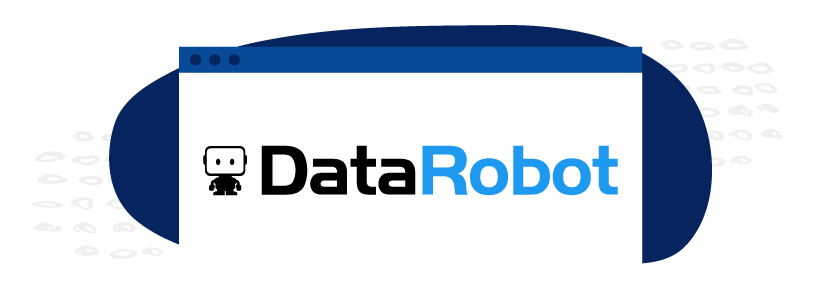It feels like there’s now an artificial intelligence (AI)-powered app for practically anything. We’ve seen everything from text editors to chatbots, from smart home devices to Google Maps and ride-hailing apps.
With global markets now accelerating AI adoption at lightning speed, today’s an exciting time to be in the AI and machine learning (ML) space. But how can you make sure your startup is generating healthy adoption rates?
One surefire way is through content marketing.
In this article, we’ll tackle the unique marketing challenges that AI and machine learning startups face at the moment. We’ll explore some of the best content strategies you can use and examples of the most effective content marketing we’ve seen.
Unique Marketing Challenges for AI and Machine Learning Startups
Amazon’s Alexa, Apple’s Siri, Microsoft’s Cortana, and Google Assistant are four of the most popular AI-powered applications in the world today. Even kids as young as two years old know how to use and talk to them.
But not all AI applications are simple to use. Most AI and ML apps come into the world at a disadvantage. The technologies behind them can be complex, and the average person will have difficulty understanding them.
Moreover, despite increasing adoption, AI and ML are relatively new technologies, and potential customers may not fully realize their capabilities and benefits.
In this blog post, we’ll look at how Tech and SaaS content marketing can help hurdle these inherent challenges. We’ll hone in on strategies like:
- Storytelling
- Thought leadership
- Case studies and success stories
Top Content Marketing Strategies for AI and Machine Learning Startups
AI and ML startups — and other organizations in the Tech and SaaS industry — can benefit from the following content marketing techniques to grow their business.
Strategy 1: Storytelling to make complex concepts accessible
Storytelling in content marketing is not very different from the storytelling done by novelists or fiction writers. Both have a plot, a hero, a problem, and a resolution. For AI and ML startups, storytelling can serve to accomplish several things:
- Connect with your target audience by keeping them engaged
- Make complex concepts more relatable and accessible
- Showcase the practical applications and benefits of your product or solution
- Humanize your brand by highlighting your startup’s challenges and successes
- Build trust and credibility by sharing customer success stories, how they overcame obstacles or achieved significant results through your product
- Differentiate your company from competitors through unique and compelling stories that demonstrate the unique aspects of your technology
- Promote your prioritization of ethical AI and machine learning use.
Tips for implementation
- Leverage visual storytelling techniques. Use infographics, animations, videos, and other visual elements to break down complex concepts into digestible chunks. Visuals also make it easier to walk the customer through a problem and how your solution addresses the problem.
- Create a hero’s journey. Your stories should have a hero—your customer. Narrate their challenges and how your product helped them overcome obstacles. Demonstrate the ways your product has transformed their lives or businesses. This makes your content relatable, inspiring potential customers with similar pain points to adopt your solution.
- Incorporate data and insights. Make your stories more credible by backing them up with hard data, relevant statistics, and research findings. This enhances persuasiveness and boosts the emotional and logical appeal of your narratives.
- Use analogies and metaphors. Find the balance between crafting content for technical and non-technical audiences. Help non-technical audiences understand your solution by using relatable examples to explain abstract concepts. For example, deep learning and the brain’s neural network. Or AI algorithms and detectives that both analyze clues and evidence to solve a mystery or problem.
Strategy 2: Thought leadership to build trust and credibility
If a customer is to choose between a thought leader and someone relatively unknown, the answer is pretty much a no-brainer.
A thought leader is someone who displays in-depth industry knowledge and uses their expertise to offer guidance, spark conversations, and inspire innovation. And content marketing is the perfect vehicle to establish thought leadership for your AI or ML startup.
Tips for implementation
- Publish high-quality content regularly. Publish blogs, case studies, white papers, ebooks, research reports, and other types of content that address relevant industry challenges, trends, and emerging technologies. This showcases your field expertise and authority in the space.
- Offer expert opinions and commentary. Participate in industry discussions. Provide expert commentary on relevant AI/ML topics. Write guest posts for reputable industry publications. Share your insights on social media.
- Provide educational content. Empower your audience through educational content to get the most out of your solutions. Develop guides, tutorials, or webinars to help non-techie customers understand complex AI/ML concepts. This establishes your startup’s reputation as a go-to expert knowledge and support source.
- Seek speaking engagements. Find opportunities to share your expertise and insights. Join industry conferences, events, or webinars. Participate in panel discussions and workshops. Engage in Q&A sessions. This enables you to directly connect with your audience.
Strategy 3: Case studies and success stories
Case studies are powerful social proofs demonstrating the real-world value of your AI/ML products and solutions. They make your offerings relatable, helping increase trust in your brand and reducing perceived risk.
Tips for implementation
- Choose customer stories that feature your solution’s unique capabilities. But find stories that represent your target audience’s challenges and aspirations. These let you showcase the value potential customers can expect from your offerings.
- Structure your case studies for clarity and impact. Begin with an overview of the customer’s problem. Then describe the solutions, techniques, and models implemented, including how they addressed the problem. Highlight applicable metrics such as cost savings, efficiency improvements, revenue growth, or customer satisfaction ratings. Include a quote from the customer, signifying their satisfaction with your product or solution.
- Use storytelling techniques. Create a compelling customer story that emphasizes the customer’s challenges, the problems they had to hurdle, and the ensuing success they achieved through your technology. Use quotes and anecdotes to make the story more impactful.
- Incorporate visuals to reinforce your key messages. Use before-and-after comparisons, charts, photos, and illustrations to make complex information easier to understand. Plus, visuals can be easily shared on social media.
Examples of Effective Content Marketing for AI and Machine Learning Startups
Research reports, videos, and case studies are just some types of content AI and ML startups publish to power their content marketing. Here are some of the best examples we’ve seen recently.
OpenAI
OpenAI’s ChatGPT recently took the world by storm, growing to 100 million users just months after its release in November 2022 — when OpenAI introduced it to the world via a blog post.
The technology powering the app isn’t exactly new, but ChatGPT came at a time when overall curiosity for generative AI was mounting. And it was the first major AI project rolled out “for the public to use, play with, and break,” says Time.
But OpenAI isn’t resting on its laurels. It’s continuing to cement its reputation as a leader in generative AI research, aiming to build a safe system that can solve human-level problems.
Check out what OpenAI is up to via their Research Overview page.
Zest AI
AI and ML for credit underwriters — that’s a pretty specific topic for a pretty specific target market. And ZestFinance is leveraging content marketing to educate credit underwriters about the benefits of their products and solutions.
Check out this explainer video on ZestFinance’s Zest Automated Machine Learning (ZAML) platform.
DataRobot
DataRobot provides automated ML software for enterprises. It’s an AI platform that organizations in the healthcare, financial services, manufacturing, and retail fields can use to build predictive models to accelerate their growth.
DataRobot’s content marketing strategy includes a use case library illustrating how organizations can use the platform.
Fueling Growth Through Content Marketing
AI and ML concepts can be hard to communicate. But as an AI/ML startup, content marketing enables you to connect with your audience through informative, engaging content. It helps you build awareness, establish credibility, and nurture customer relationships.
At ClearVoice we understand the unique content marketing challenges that AI and ML startups face. That’s why we’ve made sure to recruit proven, expert tech and software writers into our Talent Network.
Reach out to us today for a free content strategy session. We’ll show you how we can take your content marketing to the next level.










